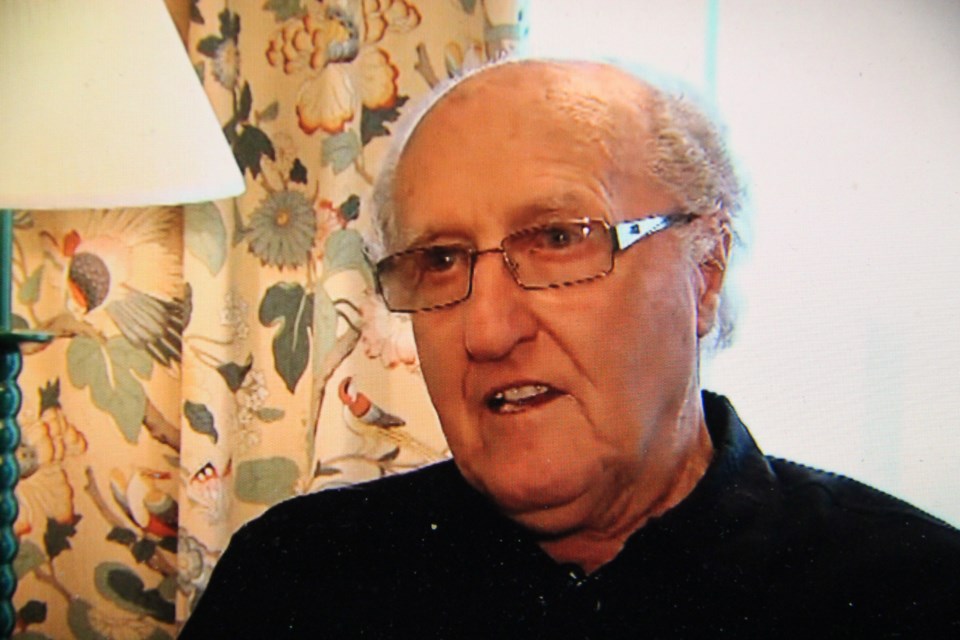One of the more controversial and often violent chapters in Sault Ste. Marie’s history concerns the role bootleggers played by illegally selling alcohol during the days of prohibition in Ontario.
The Sault Ste. Marie Public Library North Branch is inviting the public to learn more about those edgy days in the city’s history by registering for a free admission Oral History event coming up on Jan. 28.
The occasion includes a showing of videotaped recollections of that era from the Sault’s Aldo Diotallevi, whose father was a bootlegger.
Aldo - now 101 - shared his memories as a participant in The Oral History of Sault Ste. Marie Project in a 2011 interview with Cathy Shunock.
He was born on Aug. 4, 1923 in Sault Ste. Marie, the son of Italian immigrants Rico and Maria Diotallevi.
Rico was an entrepreneur who drove his own taxi cab but he also stored and supplied large quantities of alcohol to other bootleggers.
“Bootlegging was quite common in homes. People sought to augment their way of living. They needed a little more money,” Aldo said.
Rico’s bootlegging activity was no secret to his family.
“I asked my dad and I said ‘you know dad, bootlegging is illegal.’ He said ‘son let me tell you, I know it’s illegal but the government does it. They sell alcohol. They sell it and they have the complete right to it and why shouldn’t I have the right to it?’
"This was his philosophy, that he wasn’t doing that much wrong. He thought he would do what the government did, in competition. He said it should be a free market for everybody. He wouldn’t change his mind,” Aldo said.
Rico’s illicit business faced dangerous competition from the Black Hand, a group of extortionists linked to the Mafia.
“In our basement they met with dad. It was frightening. They said ‘we know what you’re doing. We know you’re bringing alcohol in and you’re supplying most of the bootleggers in this part of the country. We want you to stop,’” Aldo recalled.
The illegal booze market belonged to a Mafia man who lived not far from the Diotallevi home.
Rico objected to the threats and stuck to his belief that alcohol sales during prohibition should be based on a ‘free market’ system.
As a result, the Diotallevi family received constant threats and were in a perpetual state of danger.
Aldo remembers his father being saved from two Mafia men on James Street by a tall, imposing figure named Sandy Carbone.
Another episode involved his mother Maria going up against two Mafia men.
“My dear mother. You never saw women’s rights like this. My mother hammered one of them right in the face. The other guy was screaming ‘you are crazy.’ She was hollering ‘you tried to kill my family’ The two of them took off. She did what she was supposed to, I guess, as a loyal wife,” Aldo said.
He said the police also followed his family.
“They searched the house. There were 110 gallons of alcohol in the house. It was hidden under false floors,” Aldo said.
Police did not uncover the alcohol and Rico eventually left his bootlegging days behind.
“I was in school. I told my dad ‘this is embarrassing for me.’ He said ‘I promise this is the end. Aldo, this is the end. When I get rid of those 110 gallons I’m not in business any more. I’ve made my money.”
Aldo stated his father was an honest man who wanted to increase his income.
“He wanted to make a good living. He just wasn’t satisfied with the bare necessities. He wanted more. He rationalized that doing it this way may have been illegal in the eyes of the law but in his eyes he was just another businessman. But we had to fight the police and the Black Hand. That’s my story.”
Influenced by temperance groups determined to do away with alcohol’s often negative effects on society, the Ontario Temperance Act was in effect from 1916 to 1927.
Prohibition made it illegal to possess booze outside one’s own home and all taverns were shut down, though alcohol was available from doctors and pharmacies for medicinal purposes.
As a result the ban on booze led bootleggers to smuggle alcohol into Ontario or make their own for sale.
In 1927, the Liquor Control Act overturned prohibition and the Liquor Control Board of Ontario (LCBO) was established to oversee the sale of alcohol in the province.
The Oral History of Sault Ste. Marie Project’s look at prohibition through the eyes of Aldo Diotallevi will be held from 6 p.m. to 7 p.m. on Jan. 28 at the Sault Ste. Marie Public Library North Branch at 232-C Northern Ave. E.
Admission is free but registration is required.
There is room for 25 attendees with five spaces left, said Kevin Meraglia, Sault Ste. Marie Public Library North Branch archive technician.
Those wishing to register can do so by following this link.
Those unable to attend can view Aldo's interview here.
